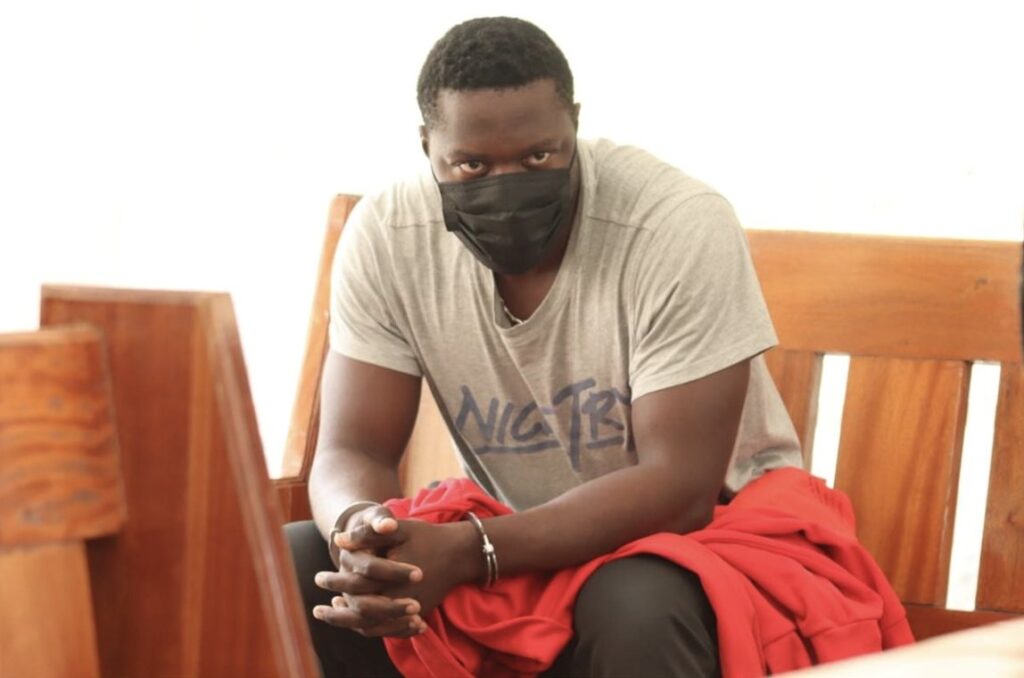Former Kenya Sevens rugby star Alex Olaba has suffered another crushing legal blow after the High Court upheld his six-year jail sentence for conspiring to murder a key witness in his ongoing rape-related case. The ruling means Olaba, once celebrated for his exploits on the rugby field, will continue serving time behind bars as his dramatic fall from grace deepens.
Justice Margaret Muigai dismissed his appeal, maintaining that the lower court had rightly interpreted the law and delivered a fair judgment. The decision outlined several reasons why Olaba’s bid for freedom failed and reaffirmed the strength of the evidence against him.
1. The Murder Plot Was Clearly Proven
The court determined that the prosecution had presented solid and credible evidence linking Olaba to a conspiracy to eliminate a key witness. Investigators produced recorded phone conversations in which Olaba discussed payment arrangements with a man he believed to be a hitman. Evidence also showed that a Sh10,000 down payment was made, with a promise of a larger sum upon completion of the act, confirming clear intent to commit murder.
2. The ‘Hitman’ Was an Undercover Police Officer
In a dramatic twist, the alleged hitman turned out to be an undercover police officer. The officer recorded crucial conversations that revealed Olaba’s involvement in plotting the murder. His testimony was deemed credible and instrumental in exposing the former player’s plan to silence the witness ahead of the retrial of his 2018 rape case.
3. The Trial Court Followed Due Process
Olaba had claimed that his defence was disregarded during the initial trial, but the High Court disagreed. Justice Muigai affirmed that the magistrate’s court had given due consideration to his submissions and mitigation, ruling that the process had been transparent and fair.
4. His Defence Was Inconsistent
The appeal court found Olaba’s defence inconsistent and unconvincing. His claims of contradictions in the prosecution’s evidence failed to sway the judge, who noted that the testimonies presented were coherent enough to sustain a conviction.
5. The Appeal Lacked New Grounds
Finally, the court ruled that Olaba’s appeal did not raise any new legal or factual issues that could justify overturning the sentence.
Olaba remains incarcerated, with his retrial in the original rape case scheduled for February 2026. Once a promising athlete, his future now lies in the hands of the courts.

